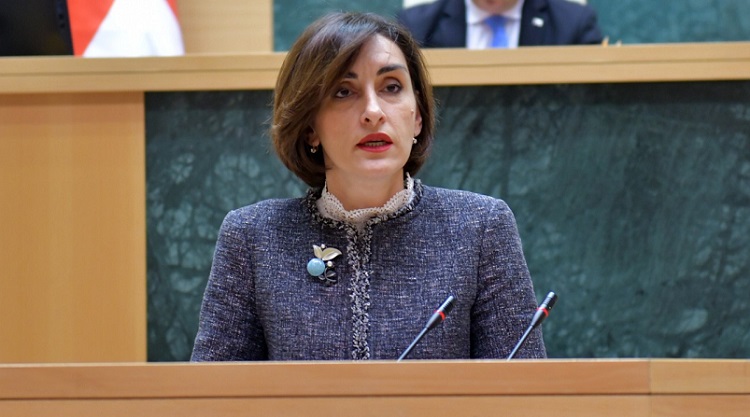Gov’t “doing its best” to advance Georgia on EU path - Parliament Committee Chair

Maka Botchorishvili, the Chair of the European Integration Committee in the Georgian Parliament, said the Government was “committed” to the country’s EU integration. Photo: Parliament press office
Maka Botchorishvili, the Chair of the European Integration Committee in the Georgian Parliament, on Thursday said the country’s Government was “doing its best” to facilitate its European integration and highlighted the “complicated” nature of the process.
Botchorishvili said the work required “much more effort” than simply the fulfilment of the priorities outlined for the country to obtain the European Union membership candidate status.
In comments on Georgian officials’ ongoing meetings in Brussels around the matter, the lawmaker stressed the discussions served to “focus on priorities and prospects” following the change in Georgia’s status from an associated country to the group of states included in the EU’s enlargement policy package, in the wake of the European Council’s decision last year to grant it a European perspective.
She added the consultations were also “important” ahead of the European Commission's forthcoming report on Georgia’s alignment with the EU framework, which is expected before the end of this year and set to be used as a recommendation to the Council on whether to grant the country the membership candidate status.
We know that it will take years for Georgia to become the country we want it to be. All steps are being taken [by the Government] to implement necessary reforms, to make progress [on this path], and this is reflected in the reports issued by the European Commission”, Botchorishvili said in reference to the Commission's 57-page analytical report on Georgia, released in February and focused on the country’s alignment with EU laws in 33 chapters.
She also claimed “fake and distorted” information had been sent by unspecified groups from the county to its European partners and, in some instances, led to “[undeserved] critical comments” from the latter towards Georgian authorities.
In response to a question from domestic media about the criticism from the country’s Western partners, the Committee Chair issued a challenge for “anyone [to] name a concrete example of the Government taking an anti-Western step”.
When asked about the example of the controversial bill on transparency of foreign influence - backed by the ruling Georgian Dream party but met by criticism from domestic civil groups, political opposition and Georgia’s Western partners as a “Russian law” before its eventual recall earlier this month - Botchorishvili said the Georgian Parliament had the “right to discuss” the initiative.
“If a specific bill harms the country’s Euro-Atlantic integration process, relevant foreign institutions can react to it in their reports and point to such threats. However, the bill has been rejected, and the topic is now closed”, she told the press.
 Tweet
Tweet  Share
Share